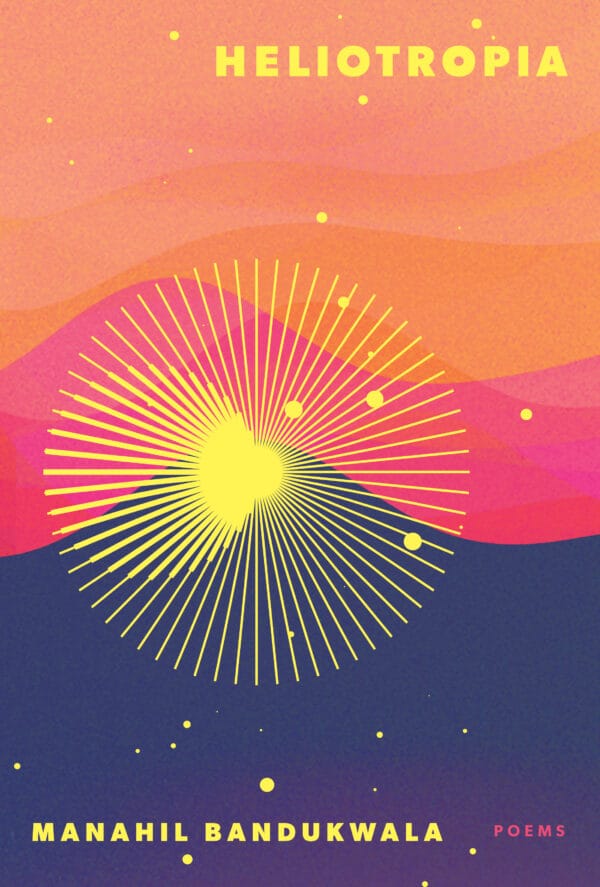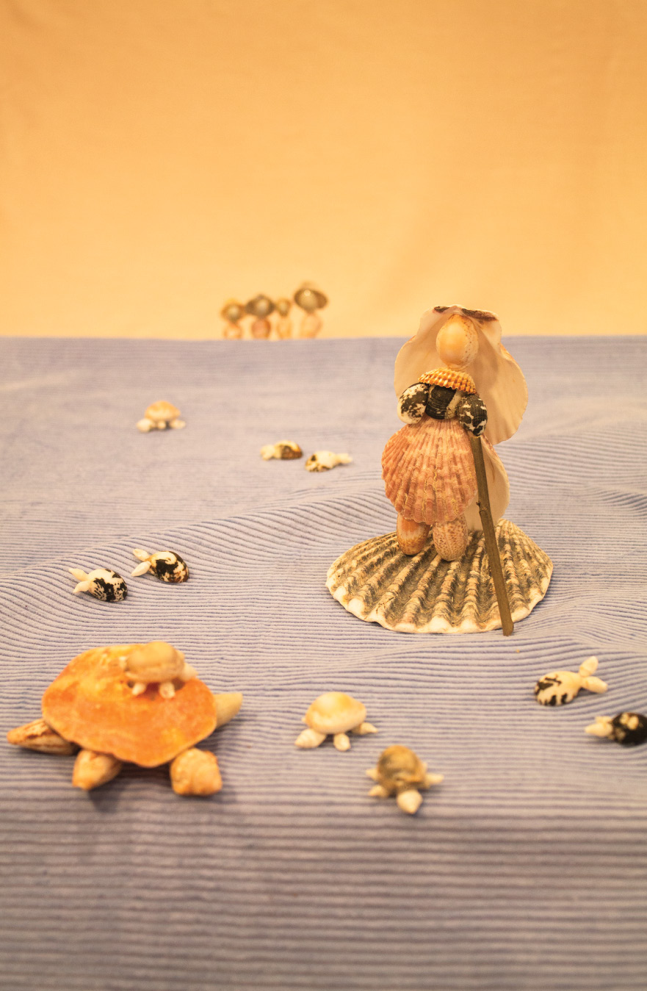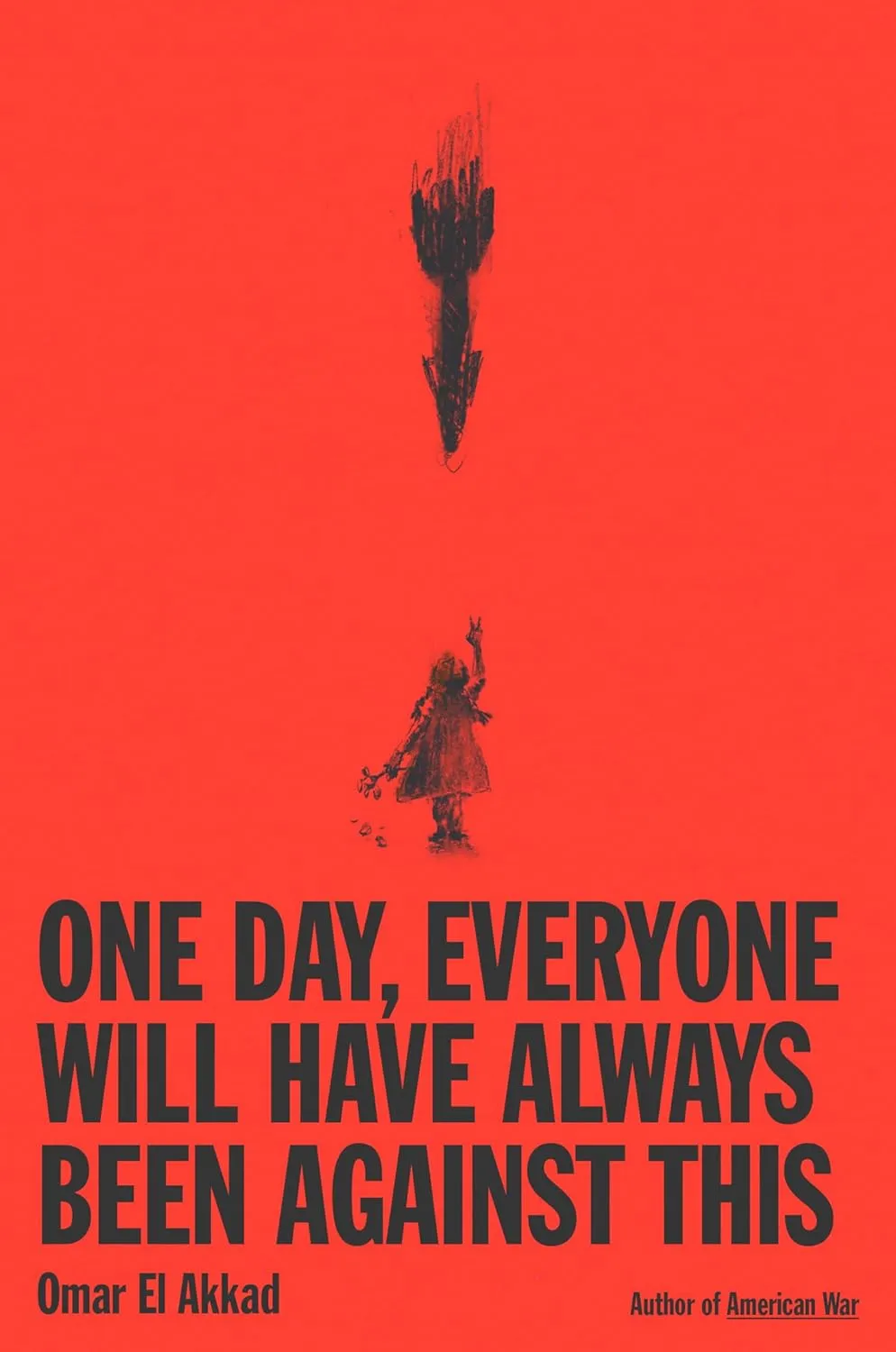Manahil Bandukwala, Heliotropia
I am confident when I say it is genuinely so exciting to read and listen to everything Manahil Bandukwala creates.

Shah Latif Abdul Bhittai (1689-1752), a wandering Sufi mystic and bard, was a poet and saint of Sindh, what is now a province in the southeast of modern-day Pakistan.
An almost Stendhalian type figure but with very real, tangentially Boccaccio-like approaches to the incorporation of folktales and folk wisdom into poetry, the celebrated Shah Jo Risalo, comprised of 30 surs (melodies or cantos).
Echo and sound are one and the same,
Language's twist and turn understand,
Both were one, hearing has much difference made.
(from the Sur Kalyan, pages 24-25 from the Internet Archive edition of Shah Jo Risalo, linked above)
Their tone arguably falls on the Wahdat al-Wujud (Unity of Being) side of Sufi mysticism, that holds that God and his creation are one and the same, as opposed to Wahdat al-Shuhud (Unity of Vision), which not only posits the opposite, but that any perception of God in everyday things should be considered unobjective.
Divine love aimed arrow again,
Whistling and wheezing to me it came,
Passing through liver and kidneys far it went,
Though hard I pull, the struck dart, I cannot extract.
Ask moths the process of burning,
Who throw themselves in fire raging,
Their hearts being pierced with arrows that come whistling.
(from the Sur Yaman Kalyan, pages 74-75, id.)
Although much of what I was able to learn of Bhittai in the course of researching for this review felt tinged with apocryphal lore in and of itself, his work itself can prove rather scarce, in spite of its breadth and renown on par with mystic poets such as Rumi and Khalil Gibran. The ambitious Bhittaipedia, launched by computational linguist Amar Fayaz Buriro, aims to digitize and provide AI-automated translations of Bhittai's surs in all their immensity, along with transliterations into Devangari and Latin script.
From what I was able to learn, Bhittai's desert wanderings were the poet's instinctual remedy to unrequited love in his native Kotri Mughal. In one account, after journeying for some time with a group of ascetic Jogis, some differences developed among them and one night, while he was asleep, they left (Melody of Clouds, a translation of Bhittai from Urdu into English, by Agha Saleem, 2001). Bhittai would go on to wander for three years, only to return home at the advice of Makhdoom Muhammad Hashim Thattvi, the first translator of the Quran into Sindhi.
Although offered another woman's hand in marriage upon his return, he was inclined to once again depart. At the age of 30, he was apprised of the execution of the Sufi Shah Inayat Shaheed.
Shah Inayat distributed family lands to feudal subjects, thus incurring the wrath of exploitative landlords, who retaliated by killing his followers. Shah Inayat then complained to the King in Delhi, who granted him land as compensation. This, he then once again passed over to his followers, in aims of deconstructing the theocratic feudal state he was born into. This led to war, a deadly conflict that the government sought to end by inviting Shah Inayat to dialogue about by sending him a copy of the Quran. He was doubtful of their tactics, but because the Quran was involved, he resolved that the matter ultimately rested with Allah regardless of his fate. His final words to the executioner, reportedly, were "You liberate me from the evil of existence/May God reward you for that in this and the next World." Shah Inayat thus appears in Bhittai's poetry as a lover who willingly enters the gallows "as a bridegroom climbs the nuptial bed."
Hence why Shah Abdul Latif Bhittai ultimately chose to retire from the world to sit on a dune (Bhitt), and hence his name, the Shah of the Dune.
His resignation from the world drew upon the humanist and secular ideals of the ascetics and Shah Inayat, and this conviction perhaps explains why he chose folklore as a means to versify his spiritual apothegms.
In Bhittai's worldview, the profane is divine, the sublime is mundane.
His influence is noted in Manahil and Nimra Bandukwala's Women Wide Awake (2023), which documents the folktales of the Seven Queens which appear in his Risalo through visual arts and poetry.
Manahil Bandukwala is poet, editor, reviewer, folklorist, visual artist (jewellery, crochet, and acrylics), columnist, and member of Ottawa-based collaborative writing group VII.
With the critical eye of fourth-wave feminism, Manahil and visual artist Nimra Bandukwala, however, do not accept at face value that his contributions were necessary to shepherd in the tales to the present era.
Whether these centuries-old folktales are alive because of Bhittai’s poetry is uncertain, but he gave a vehicle through his work to experience through song and imaginative language, the longing, strength, and love of these women.
So much of Sindhi cultural heritage, from the ralli to the kameez and sari cloth, is matrilineal or feminine in origin. The book happily incorporates these words into culturally saturated retellings of these women's tales, part of the sisters' Reth aur Reghistan ("Sand and Desert" in Urdu) arts project, that seeks to capture the unique landscape of these stories and their childhood.
Simply put, their work is exquisite, each tale containing original art pieces accompanied by prose stories and followed with poetry, and the art incorporating personal connections at every step of the way. The book is a portable historical exhibit, replete with knowledge, fiction and fact. The figure of Mai Kolachi, for example, the figure of the eponymous story "A Woman Wide Awake," was crafted "with shells collected from a beach during childhood trips, close to where her story originated."

This informed, scrutinizing, and joyfully talented edge should come as no surprise to readers of Manahil Bandukwala, seeing as it is exactly this tact that earned her début poetry book, Monument (2022), such resounding success, including a nomination for the Gerald Lampert Memorial Award for 2023 and the Writer's Trust of Canada Rising Star award in the same year.
Through illustrations, history and poetic license, once again, Bandukwala unweaves the tale behind the muse of the Taj Mahal, the Mughal Empress Mumtaz Mahal, Arjumand Banu, and starts to pull apart the strands of the tale behind the scale of human suffering, national myth building and toxic masculinity that led to this monument becoming a symbol of Indian history when it is very much symbol of something else, that, while reading, makes you do a double take at what it really means to immortalize someone by entombing them.
Yet, through reckoning with these delusions, Bandukwala finds new ways to lean into love, often with an elegiac tone.
This poem, part of the Offspring sequence of poems about descendants of the Empress, poeticizes the fourteenth and last child she bore, dying in childbirth:
Gauharara
The material of souls came from residue
of decay,
meaning—
some part of you resided in Gauharara,
some light sputtering behind the bed's mosquito net,
some dirt caught between baby toes.
Travelling from Burhanpur to Agra,
your soul was embedded under the soft film
of newborn skin.
Your late daughter, with her daisy earrings and daisy
tika moving soundlessly through the maze
of siblings and successions,
carried with her a part of you—
meaning,
some of you would always live.
Gauharara did not take everything. In Burhanpur
the right angle of the sun
revealed a shimmering spot, some distance
from your grave. Because the moment the soil
of the first burial landed
was the moment the soul disentangled, shedding
off parts for futures to carry.
To speak back to an array of questions:
What would you have done differently?
What could you have done differently?
To ask:
How else would I behave?
How else could I?
Monument thus serves as this stunningly artful historical-poetical-social-philosophical document that really plants the seeds for future explorations and ascertations of her poiesis, her poetics.
Though Heliotropia is her second ever collection of poems, Manahil Bandukwala has also co-authored two chapbooks through writing group VII, a short poem sequence Orbital Cultivation with Liam Burke, an eco-poetry chapbook Sprawl with Conyer Clayton, and most admirably, in my opinion, the Sindhi folklore collection of poetry and curated visual arts Women Wide Awake published with her artist sister Nimra Bandukwala that I talked about above.
Bandukwala was Coordinating Editor for Arc Poetry Magazine for the first several years I was publishing my reviews with them and her request for pitches an always welcome letter in my inbox. She herself has published reviews extensively across the country, with work in Malahat Review, Fiddlehead, Room Magazine, The Hamilton Review of Books, The Temz Review, and Minola Review, as well as an interview with poet Laila Malik in rob mclennan's Periodicities. She is also Digital Content Editor for Canthius.
And yesterday, November 25, 2024, her first ever fiction publication "Duct Tape" appeared online in the Ex-Puritan.
Heliotropia (Brick Books, 2024) as poetry collection poses an evocative second entry into an already expansive multidisciplinary career, an assemblage of cosmic love poems that lovingly mock the present moment with all the dark, elegiac and intellectual elements that turn an everyday feeling into a mystical universal through optimistic nihilism, her words, or joyful realism, my own.
Even just writing this review now, I am reminded of a familiar reference from her 2024 work as the opening epigraph to her previous poetry book: Phyllis Webb, Canadian poet, feminist, CBC producer and host, and visual artist, and the inspiration for Monument's title, from Webb's Selected Poems, 1954-1965 (Talonbooks, 1971):
Moments are monuments
if caught
carved into stone
— Phyllis Webb
In a CBC retrospective broadcast on Webb, poet, essayist and translator Lisa Robertson states:
"As Phyllis's work was becoming quite well known in the sixties, there's a certain set of conditions around other women poets. She was a contemporary of Sylvia Plath's and Anne Sexton's, for example. And, I feel like, there has been a narrow cultural habit to interpret women writers in pathologizing ways and I think perhaps Phyllis's work has critically suffered that tendency."
Darkness and joy and social engagement, philosophy and pop culture very much appear throughout Bandukwala's works in a way not dissimilar to how Robertson signals them in Webb in the full broadcast above, so Bandukwala's affinity for Webb feels not only apt but prescient.
This intense intellectual engagement with life that Robertson describes Webb with is evident in the breadth of works and engagements Bandukwala already has to her name.
Rather than lean into any pathologizing, I would motion to say that I am genuinely looking forward to whatever Bandukwala makes next, poetry or otherwise.
As already foreshadowed, the author of Ghazals and Anti-Ghazals, Phyllis Webb, appears once again in Heliotropia. And indicatively enough, among poems that may be considered (or indeed intended) as sonnets or anti-sonnets.
Before Clarity
I am you in your jewel-domed reading room,
I am you in your kayak skimming.
— Phyllis Webb
The sky is inverted. I call you in the bare yellow night.
I am you against the river of clouds,
I am you in an energy current trembling down the bedroom walls,
you in the contrapuntal stream of two trees
racing vertically away from the earth.
The sea is inverted. Midnight sun
at our southern latitude glows beneath our feet.
I call you from the land that is now our sea.
There is no becoming; I always was.
Now all events are kisses, a softness
in the morning before clarity settles in.
You in the exhalations that clear out the day’s old dust,
you, large enough to hold the sun.
The vapour of knowing might be lost, the dream
we never woke from. You,
I am floating in saltwater in our sea that was once land.
The major shift in tone between her first and her second poetry books appears between the audacious final line of her former work ("To everyone thinking about the 'what could have been' of our past: this is for you.") and the opening page of her newest work, following all the symbolism behind the word heliotrope, with her own epigraph: for all our tomorrows.
A heliotropium is a genus of flowering plants whose name, according to Wikipedia, is derived "from the old idea that the [flowers blossoming from the stem composed of a main branch] of these plants turned their rows of flowers to the Sun."
This has direct ties to myth and to science (heliotrope + utopia), a mix that is very much a discerning leitmotif for Bandukwala.
Heliotropia is a formidable text, mise en page and celebration of all the elements that make her poetry enjoyable: the unexpected references to Star Trek, Miyazaki, that iconic line about being happy in life just doing taxes and laundry from Everything Everywhere All At Once, a sumptuous poem invoking the sultriness of Michael Ondaatje, and all the stylistic gestures and delightful experiments with shape, white space, line breaks, erasure, form and formatting, that have, between the span of just two books, become a calling card for Manahil Bandukwala's poems.
In a poem sequence ("Space Opera") spanning roughly 20 pages, Bandukwala invokes the metaphysical philosopher Jaegwon Kim several times.
Jaegwon Kim championed Philosophy of Mind during his lifetime, an ongoing discourse between science and the humanities he conducted to tease apart what makes the mind separate from the body, the soul, and, at length, the essence of perception and consciousness. Its implications to inform the poetics of Manahil Bandukwala I consider obvious and enthralling.
I wasn't familiar with Kim's work before encountering him through these epigraphs, but I am growingly familiar with a metaphysical philosopher I began enjoying recently, Graham Harman. Harman makes one passing mention to Jaegwon Kim in an article published over a decade ago that I wanted to delve into for the sake of this review, which I'll get to a little further down here.
Out of a desire to better formalize the impact, if not eventually also the structure, of my own writing, contemporary metaphysics has provided a uniquely well-read literature from which to gather my thoughts and pool my intent behind choice metaphors, rhetoric, and allusions. Harman's Object-Oriented Ontology is a work I have been trying to incorporate into my literary criticism praxis through my last several reviews since September 2023 when I first read him and I think Bandukwala and I share this drive to effectively promulgate the key elements of a particular metaphysician who can make sense of the world on a sensuous and literal level that reckons with science, art and the human psyche. In this sense, the impulse is mutual.
Jaegwon Kim was made an unfortunate target of by other philosophers in the field, proponents of an ontic structural realism that could not be further from Harman's philosophy if they tried. Harman's lecture on materialism given at the University of Dundee, Scotland on March 27, 2010 (and later published with the final line as its title in Society and Space) concludes probably the most ravaging literary analysis of Ladyman and Ross's Every Thing Must Go, 2007, with an appeal to the idea encapsulating his réplique:
At the risk of sounding pious and saccharine, in the debate between Meno and Socrates I will always choose Socrates. Philosophy remains the love of a wisdom that is never attainable: it is neither a wisdom about thought nor a wisdom about nature nor a wisdom about what can be mathematized. And although it is no longer controversial to say that philosophy should not be the handmaid of theology, we should beware lest it become the handmaid of physics, mathematics, sociology, or politics instead. Philosophy is the handmaid of nothing: for it is not wisdom, and must not serve anything that claims to be wisdom. And furthermore, I am also of the opinion that materialism must be destroyed.
In Harman, Ladyman and Ross are demonstrated time and time again to contradict their own appeals to "democratize" (re: force the concepts of what is real and what is knowable upon) metaphysics with literal scientific physics:
Special Relativity ought to dictate the metaphysics of time, quantum physics the metaphysics of substance, and chemistry and evolutionary biology the metaphysics of natural kinds.
Their premise is contrived, not deep, and hypocritical at nearly every flourish of rhetoric and logic, according to Harman, because their true enemy is materialism, not Ludditism. And it's hilarious.
Harman continues:
Their scientism leads them to make unusually harsh remarks about some of their colleagues, which they justify by saying that they care too much about philosophy to speak anything less than the painful truth.
At some point Ladyman and Ross decide to start naming names. Jaegwon Kim happens to be one of those prominent philosophers chastised by the polemicists.
Now, I can't profess to being acclimated to the implicit rigours demanded by the formal study of philosophy writ large, and this is perhaps why most people don't like reading Graham Harman (I can't find his books anywhere in Montreal; then again, the other day in the Plateau, I readily found Habermas, Hegel, and Hume on the shelf in two different shops, but in one, no Heidegger... likely for good taste).
But to my eyes, Kim doesn't appear to work any idea on the page out based on a priori intuitions and semantics as Ladyman and Ross accused him of doing.
In fact, he has some very neat ways of introducing problems to the reader that almost surprise you with the change in pace from dipping a toe to swimming in the deep end, reminiscent of the non-fiction work of writers such as Asimov and José Martí:
At the outset of his Second Meditation, Descartes offers his famous “cogito” argument. As every student of philosophy knows, the argument goes “I think, therefore I exist.” This inference convinces him that he can be absolutely certain about his own existence; his existence is one perfectly indubitable bit of knowledge he has, or so he is led to think. Now that he knows he exists, he wonders what kind of thing he is, asking, “But what then am I?” Good question! Knowing that you exist is not to know very much; it has little content. So what kind of being is Descartes? He answers: “A thinking thing” (“sum res cogitans”). How does he know that? Because he has proved his existence from the premise that he thinks; it is through his knowledge of himself as a thinker that he knows that he exists. To get on with his dualist arguments we will grant him the proposition that he is a thinking thing, namely a mind. The main remaining issue for him, and for us, is the question whether the thinking thing can be his body—that is, why we should not take his body, perhaps his brain, as the thing that does the thinking.
Jaegwon Kim also mentions STEM subjects, when relevant, elsewhere. But in my opinion, this excerpt of his is more salient because it is accessible and elucidating in a way most philosophy just isn't. And like my favourite at the moment, Harman, Kim can also be resolutely deadpan, ad centipedium:
When I say I am identical with this body of mine, I do not mean that I am identical with the “time slice”—that is, a temporal cross section—of my body at this instant. What I mean is that I am identical with the temporally elongated “worm” of a three-dimensional organism that came into existence at my birth and will cease to exist when my biological death occurs. This four-dimensional object—a three-dimensional object stretched along the temporal dimension—has different material constituents at different times, but it is a clearly delineated system with a substantival unity and integrity. It is this material structure with a history with which I claim I am identical. (To the reader: How might a Cartesian dualist reformulate the argument in answer to this objection?)
But there is a lucid delight in reading his works and seeing the immediate reflection in the poems Manahil Bandukwala has poured so much of herself into, truly channelling the combined realism, joy and intellect of every writer she has incorporated into her works.
The appeal of Jaegwon Kim is immediate and the move from mind-body problem to epiphenomenalism something completely novel to me as a casual enjoyer of philosophy. The poem sequence's title (Space Opera) at first glance may evoke The Empire Strikes Back, but it is much more on the level of Everything Everywhere All At Once in terms of metaphysics, whereas Star Wars just has physics (except laser beams being audible in a vacuum, and I know I won't die alone on this hill!).
What I mean by this is the way Bandukwala incorporates Jaegwon Kim into the poems of this sequence exude a spirituality enlightened by Cartesian thought experiment, objectivity, and the inherent absurdity of the natural sciences. Is the soul located in the brain? If so, is thought sufficient to prove the existence of consciousness, and when we think, from the brains in our bodies, do our thoughts impose or exert influence on the things we think about extraneous to the body? Moreover, when we die, do our souls survive, or are they merely a figment of a biochemical process? The ruminations of Bhittai flit back into focus. Through her words, her particular brand of metaphysics becomes something that merges intuitively into her poetics and I anticipate the continued influence of Jaegwon Kim throughout Bandukwala's narrators and narratives for years to come.
With all this context in mind, and everything else beyond the little I could investigate here and now, I am confident when I say it is genuinely so exciting to read and listen to everything Manahil Bandukwala creates.
I honestly don't believe there are any living poets in Canada right now doing what she does, in the way that her interdisciplinary approach curates an ever-growing catalogue of holistic, insightful and unique tastes, influences and inspirations, that then once combined with the subject at hand, be it historical, scientific, sociological or literary in nature, produces something new that is so compellingly substantive and original, it makes what she creates impossible to not enjoy, share and learn from.
If you've read all the way to the end, then I only have this left to say: it has truly been a pleasure to discuss the works of Manahil Bandukwala. Please find her poetry book Heliotropia through her publisher Brick Books of Kingston, Ontario.
Bibelotages Newsletter
Join the newsletter to receive the latest updates in your inbox.



